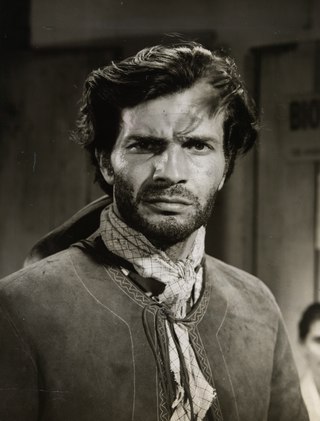
São Paulo LGBTQ Pride Parade is an annual gay pride parade that has taken place in Avenida Paulista, in the city of São Paulo, Brazil, since 1997. It is South America's largest Pride parade, and is listed by Guinness World Records as the biggest pride parade in the world starting in 2006 with 2.5 million people. They broke the Guinness record in 2009 with four million attendees. They have kept the title from 2006 to at least 2016. They had five million attendants in 2017. As of 2019 it has three to five million attendants each year. In 2019, it was also the second larger event of the city of São Paulo in terms of total revenue and the first in terms of daily revenue. In 2010, the city hall of São Paulo invested 1 million reais in the parade. According to the LGBT app Grindr, the gay parade of the city was elected the best in the world.
O Estado de S. Paulo, also known as Estadão, is a daily newspaper published in São Paulo, Brazil. It is the third largest newspaper in Brazil, and its format changed from broadsheet to berliner on October 17, 2021.

Lesbian, gay, bisexual, transgender, and queer (LGBTQ) rights in Brazil rank among the highest in the world. Same-sex couples in Brazil have enjoyed the same rights guaranteed to heterosexual ones since 16 May 2013, including marriage and adoption. On June 13, 2019, the Brazilian Supreme Court ruled that discrimination on the basis of sexual orientation and gender identity is a crime akin to racism.

Tarcísio Pereira de Magalhães Sobrinho, known professionally as Tarcísio Meira, was a Brazilian actor.

Sérgio Ferro is a Brazilian painter, architect and professor. He has been living in France since the early 1970s. He holds degrees in Architecture and Urbanism (FAUUSP) and in Semiotics (Mackenzie), with postgraduate studies in Museology and Urban Evolution (FAUUSP). He was imprisoned by the military dictatorship and, upon his release, went into exile in France.

Rosely Roth is considered one of the pioneers in the history of the LGBT movement of Brazil.

Partido da Imprensa Golpista is a term used by left-wing Brazilian websurfers since 2007 to characterize an alleged attitude of the Brazilian mass media towards President Luiz Inácio Lula da Silva during the 2006 presidential election. The term was popularized by journalist Paulo Henrique Amorim in his blog. Whenever he uses the term, Amorim writes it with an "i" in lowercase as a pun with the name of the web portal "iG". where he was a journalist before he was dismissed on March 18, 2008, which he describes as a process of "ideological cleansing".

The National Council for the Rights of Lesbian, Gay, Bisexual, Transvestite, Transsexual, Queer, Intersex, Asexual and Other People, formerly the National Council for Combating Discrimination and Promoting the Rights of Lesbians, Gays, Bisexuals, Transvestites and Transsexuals until 2018, is an executive council under the Ministry of Human Rights and Citizenship. The is located in Brasília, in the Federal District, in Brazil.

This article is intended to give an overview of the history of LGBT rights in Brazil.

Lesbian, gay, bisexual, and transgender (LGBT) rights are liberal in Bahia. Homosexuality and same-sex marriage are legal in the state.
Maria Evangelina Leonel Gandolfo, known as Vange Leonel, was a Brazilian singer-songwriter, rhythm guitarist, journalist, blogger, cronista, novelist, playwright, beer sommelier, and feminist and LGBT rights activist. Known for her distinctive soulful, bluesy vocals heavily inspired by Billie Holiday and Janis Joplin, she was famous for her work with post-punk band Nau, active from 1985 to 1989, before beginning a solo career in 1991.
Míriam Martinho is one of the leading feminists in Brazil and part of the second generation of feminist journalists, who emerged in the 1980s. She was one of the first people to bring lesbianism openly into the fold of feminism and founded one of the first Lesbian-Feminist organizations in the country. She and Rosely Roth gained recognition for staging a protest, known at the "Brazilian Stonewall" at Ferro's Bar in 1983. She has written for numerous LGBT and feminist journals and has submitted expert testimony on the state of the LGBT community in Brazil.
Lesbian Visibility Week is an annual observance in the United States, the United Kingdom and other countries dedicated to increasing the awareness of lesbian women and their issues. It was originally celebrated in July in 1990 in California, and more recently in April, starting with Lesbian Visibility Day on April 26. It has been celebrated in England and Wales.
Flavio Colin was a Brazilian comic artist and illustrator, considered one of the most important comic artists in Brazil. He began his career in the 1950s with an adaptation for the comic book radio series As Aventuras do Anjo, influenced by Milton Caniff, but began to gain prominence with the development of his own stylized artist style. In 1987, he was awarded with the Prêmio Angelo Agostini for Master of National Comics, an award that aims to honor artists who have dedicated themselves to Brazilian comics for at least 25 years. He also won the Troféu HQ Mix in 1994 and 1995. Flávio Colin died in Rio de Janeiro on 2002.

Linda Brasil Azevedo Santos is a teacher, LGBT rights activist, and politician who became the first trans woman elected to a parliamentary position in the state of Sergipe, Brazil. She was elected in 2020 as a member of the Socialism and Liberty Party.

Caroline da Cunha Duarte, better known as simply Carol Duarte, is a Brazilian actress. She has won various awards, including an APCA award, an Extra Award, and a Platino Award, along with nominations for the Grande Otelo award and the Guarani Prize.

Mônica Tereza Azeredo Benício is a Brazilian architect, urbanist, feminist, and LGBT+ rights and human rights activist. She is currently a councilwoman with the Socialism and Liberty Party (PSOL) in the city of Rio de Janeiro, having assumed office in 2021. She is the widow of councilwoman Marielle Franco.

Patricia Marquez de Azevedo, known professionally as Patricia Marx, is a Brazilian singer-songwriter.













